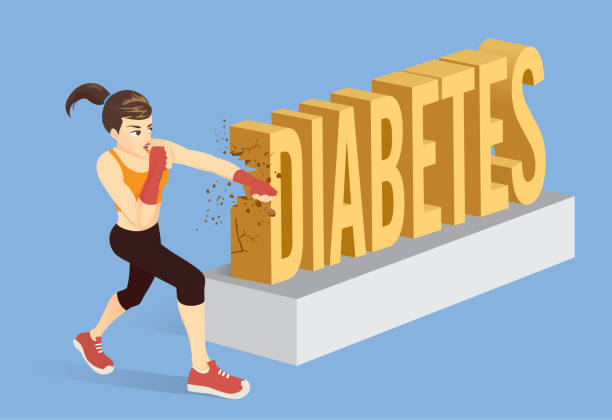BLOG
Insulin Resistance and Diabetes: Are you at Risk?
I wanted to touch on this topic because I read an article from an incredible Orthopedic Surgeon Dr. Howard Luks, MD that blew my mind and really challenged my viewpoint on how we screen for those at risk for Diabetes.
August 8, 2022
Dr. Donald Mull, DC

Are you at risk for diabetes? You may be surprised by the answer after reading this!
I wanted to touch on this topic because I read an article from an incredible Orthopedic Surgeon Dr. Howard Luks, MD that blew my mind and really challenged my viewpoint on how we screen for those at risk for Diabetes. I loved this article so much that I want to summarize my takeaways with the hopes that you are encouraged to read it in its entirety.
My Takeaways:
- 1. 50% of Americans have insulin resistance, even if they are thin and appear to be healthy! (Insulin resistance is a precursor to pre-diabetes which is seen in blood sugar screens)
- 2. Insulin resistance will accelerate atherosclerosis, thus worsening the disease course of heart disease, hypertension, dementia, and stroke.
- 3. Too much insulin can result in high blood pressure (hypertension), obesity, abnormal lipids, and glucose intolerance.
- 4. Your pancreas is in charge of making insulin (via beta cells) when you eat so glucose can get into cells to make energy - the pancreas can get tired and worn down after years of producing too much insulin.
- 5. Insulin resistance is REVERSIBLE as the pancreas function is still salvageable at this stage (much less likely once you have been diagnosed with Type 2 Diabetes!!)
- 6. Once the beta cells of the pancreas stop working (diabetes type 2) they may never come back again!! This is why diabetics often need insulin injections to keep blood sugar under control.
- 7. When functioning properly insulin should cause muscles to store carbs you eat as glycogen in the muscle - when not functioning properly the liver takes most of these carbs increasing VLDL and decreasing HDL levels.
- 8. Insulin Resistance leads to shunting the glucose (carbs) away from muscle storage and into your liver (even as early as 20 year-olds!!).
How can you screen for insulin resistance?
- 1. Usual blood tests might not reveal the presence of insulin resistance for a decade or more
- 2. The liver takes on the glucose that the muscle doesn’t so blood sugar levels stay in check (hence why screening blood sugar levels won’t screen for insulin resistance).
- 3. The screens for insulin resistance are Oral Glucose Tolerance Test and Triglyceride to HDL Ratio (below)
- a. Triglyceride to HDL Ratio:
- i. Take your last blood test
- ii. Look at your triglyceride and HDL levels
- iii. Divide your Trigs by your HDL… What is the number you get?
- iv. It should be less than 3.5
- v. **There are caveats for certain populations to this ratio - read the full article for more**
- 4. If your fasting triglyceride levels are over 100, you should consider having an Oral Glucose Tolerance Test.
- 5. If your number is above 3.5 then you are at high risk for developing Type 2 Diabetes and the chronic diseases associated with it (heart disease, dementia, strokes, fatty liver, etc.)
How can we prevent Insulin Resistance or Diabetes?
- 1. Simple carbs (white breads, candy, etc) create a faster spike in glucose which makes it harder for the liver and muscle to handle glucose coming in.
- 2. The main issue driving insulin resistance and weight gain, is total caloric excess- eating too much, too often.
- 3. The biggest storage unit for glucose is our muscles, so we NEED to lift, push and pull heavy things to improve how we regulate blood glucose. (Your muscles act like an endocrine gland, pretty neat!!)
- 4. Remember the more glucose that is used by your muscles the less your liver will turn into triglycerides.
- 5. The bigger your muscles, the more glucose it will use (less work on the pancreas and liver!)
- 6. Leg muscles are bigger so first concentrate there and ask for help if you need it (also love the riff Dr. Luks goes on about this topic - again read the whole article!)
- 7. Aerobic exercise or increasing our net activity (take your dog on a long walk or go on a walk with friends at lunch).
- 8. Get your sleep! Sleep improves how our body manages sugar
Knowing if you are living with insulin resistance is crucial! After reading Dr. Luks phenomenal article, I have realized that it is overlooked and gone untested in many. Why is it so important? Because this is the stage that you can act. The power is still in your hands before it is too late! You can save decades of your life and live a long healthy life, staying as young as you can for as long as you can.
This is near and dear to me as I have known people close to me suffer at the end stages of their lives as a result of PREVENTABLE diseases that we mentioned. I highly encourage you all to take this information and do something about it. So take your health into your own hands!
Related Posts
What Can I Do to Relieve my Back Pain?
Back pain is a very common condition and causes more disability than any other condition. So if you are feeling this, you are...
Read more
Foods to Avoid When in Pain
We often forget all of the factors that can influence pain. The easiest thing to do is to blame the last activity we have don...
Read more
Why does my shoulder keep hurting?
You are not alone: Shoulder injuries are one of the most common injuries, especially those who are active, are overhead athl...
Read more
Search the Blog
